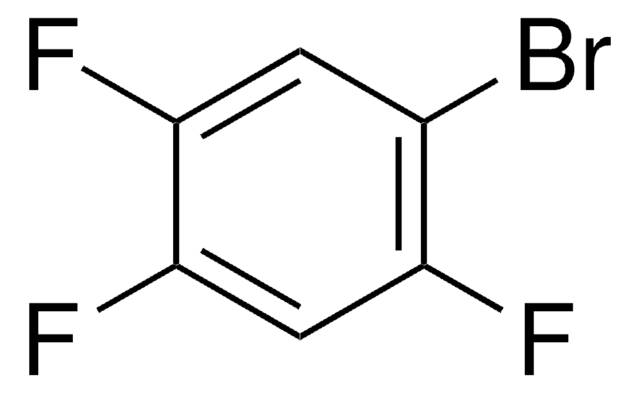112682
Formiate d′éthyle
reagent grade, 97%
Synonyme(s) :
Ester éthylique de l’acide formique
About This Item
Produits recommandés
Qualité
reagent grade
Niveau de qualité
Densité de vapeur
2.5 (vs air)
Pression de vapeur
15.16 psi ( 55 °C)
3.79 psi ( 20 °C)
Pureté
97%
Température d'inflammation spontanée
851 °F
Limite d'explosivité
16 %
Indice de réfraction
n20/D 1.359 (lit.)
Point d'ébullition
52-54 °C (lit.)
Pf
−80 °C (lit.)
Densité
0.921 g/mL at 20 °C (lit.)
Chaîne SMILES
CCOC=O
InChI
1S/C3H6O2/c1-2-5-3-4/h3H,2H2,1H3
Clé InChI
WBJINCZRORDGAQ-UHFFFAOYSA-N
Vous recherchez des produits similaires ? Visite Guide de comparaison des produits
Catégories apparentées
Description générale
Application
It may be used in the synthesis of isoflavone.
Mention d'avertissement
Danger
Mentions de danger
Conseils de prudence
Classification des risques
Acute Tox. 4 Inhalation - Acute Tox. 4 Oral - Eye Irrit. 2 - Flam. Liq. 2 - STOT SE 3
Organes cibles
Respiratory system
Code de la classe de stockage
3 - Flammable liquids
Classe de danger pour l'eau (WGK)
WGK 1
Point d'éclair (°F)
-4.0 °F - closed cup
Point d'éclair (°C)
-20 °C - closed cup
Équipement de protection individuelle
Eyeshields, Faceshields, Gloves
Choose from one of the most recent versions:
Déjà en possession de ce produit ?
Retrouvez la documentation relative aux produits que vous avez récemment achetés dans la Bibliothèque de documents.
Les clients ont également consulté
Notre équipe de scientifiques dispose d'une expérience dans tous les secteurs de la recherche, notamment en sciences de la vie, science des matériaux, synthèse chimique, chromatographie, analyse et dans de nombreux autres domaines..
Contacter notre Service technique









